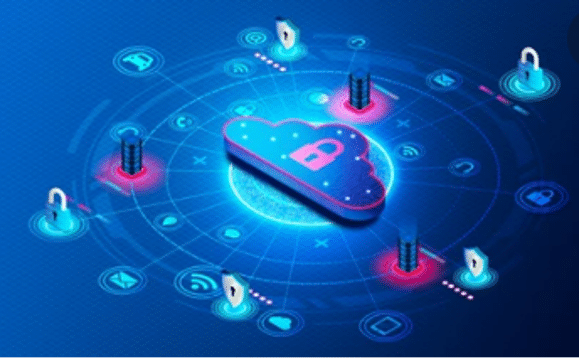Automating Your Cybersecurity: A Guide for Businesses
- December 21, 2022
In the fast-paced world of digital business, cybersecurity has become a key component of success. However, with so many potential threats, it can be difficult to keep up with all the necessary security protocols. Fortunately, there’s an easier way to protect your data: automation. By automating your cybersecurity measures, you can reduce risk and increase productivity while still keeping your company safe.

What Does Automated Cybersecurity Do?
Automated cybersecurity works by continuously monitoring all devices connected to the network for potential threats. This includes servers, computers, mobile devices, and other internet-connected systems. The automated system will look for signs of suspicious activity that could indicate a breach or attack in progress. It also runs regular scans to detect any vulnerabilities or weak spots in the network which can be exploited by malicious actors. Additionally, automated cybersecurity will suggest corrective measures to improve overall security posture such as patching software or updating passwords.
The Benefits of Automation
One of the most significant advantages of automating your cybersecurity is increased efficiency. Manual processes are often slow and cumbersome, meaning they can take up valuable time and resources that could be better spent elsewhere. Automation eliminates this issue by streamlining the process and freeing up personnel to focus on other tasks. Additionally, automated systems tend to be more reliable than manual ones as they don’t depend on human error or oversight. This reduces risk and ensures that all security protocols are followed consistently and accurately.
Another benefit of automation is improved scalability. As your business grows, manual processes can quickly become too complex or time consuming to manage effectively—but automated systems have no such limitation. Thanks to AI-driven solutions like cloud computing, you can scale up or down as needed without sacrificing quality or performance. This makes it much easier to ensure that all aspects of your security system remain up-to-date and effective no matter how rapidly your company grows or changes over time.
Finally, automated systems offer enhanced visibility over security issues which makes it much easier to stay ahead of potential threats before they become serious problems for your business. With manual processes, it’s easy for a single person to miss something important; but with automated systems in place, any anomalies will immediately be flagged so that you have the opportunity to take appropriate action before further damage occurs.
How Do I Implement Automated Cybersecurity?
First, start by checking that you have the right software to protect your system – anti-virus, malware protection, firewalls, etc. – as well as user authentication credentials. Once everything is secure, the next step is to automate the process of monitoring and investigation. This means setting up alerts to detect signs of malicious activity and putting in place a response plan which explains what to do if an attack occurs.
Automated scanning tools can be used to constantly look out for any vulnerabilities in the system, making sure all users adhere to security protocols such as changing passwords regularly and updating their software as soon as updates are released. Finally, it’s important to regularly train staff on good cyber security practices so they know how best to handle a threat when one arises, mitigating any fallout from being breached. With these steps implemented correctly, automated cybersecurity will keep your data safe from malicious actors.
Conclusion
Automating your cybersecurity is one of the best ways for businesses to protect themselves from potential threats while also freeing up personnel time and resources for other projects. The benefits are clear: increased efficiency, improved scalability, and enhanced visibility make automating an attractive option for any company looking to stay secure in the digital age. If you want to ensure that your business remains safe online while also maximizing its productivity and efficiency, then automating your security measures is a great place to start!
At Global Legal Law Firm, our lawyers are familiar with the rapidly changing nature of electronic payments processing, and the ever changing regulations involved, with decades of expertise in ISOs, processors, commercial collections, credit card brands, and other forms of electronic payment processing litigation. Let us guide you through this new and volatile environment, rather than attempting to navigate it on your own.
Recommended Posts
-

Why You Need an Attorney for Contract Review
Contracts are an integral part of running a business. They establish...
Read More -

What is Commercial Litigation?
Commercial litigation is a crucial aspect of the legal landscape that...
Read More -

What Is Tortious Interference With a Contract?
Tortious interference occurs when a third party intentionally disrupts a contractual...
Read More